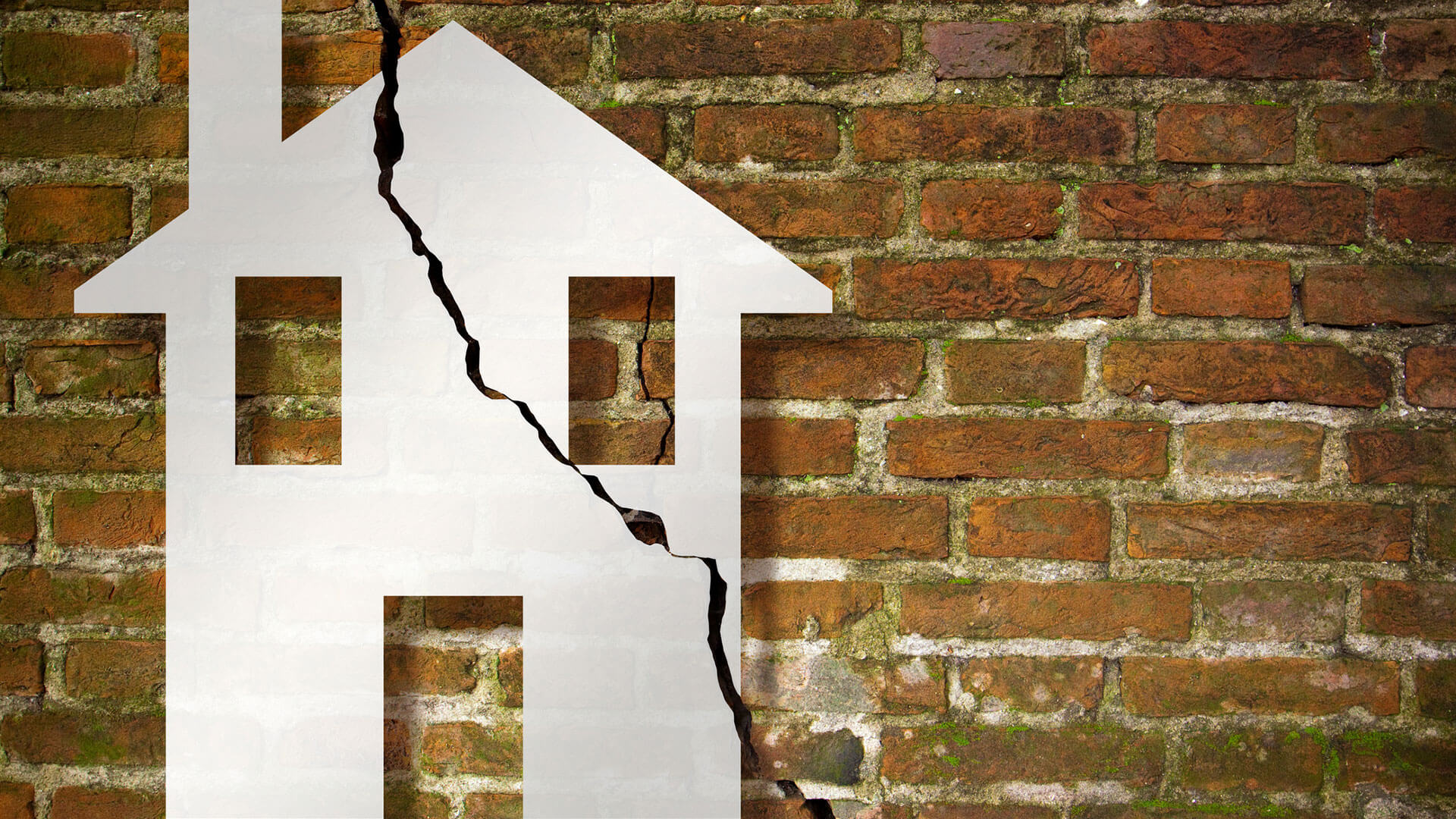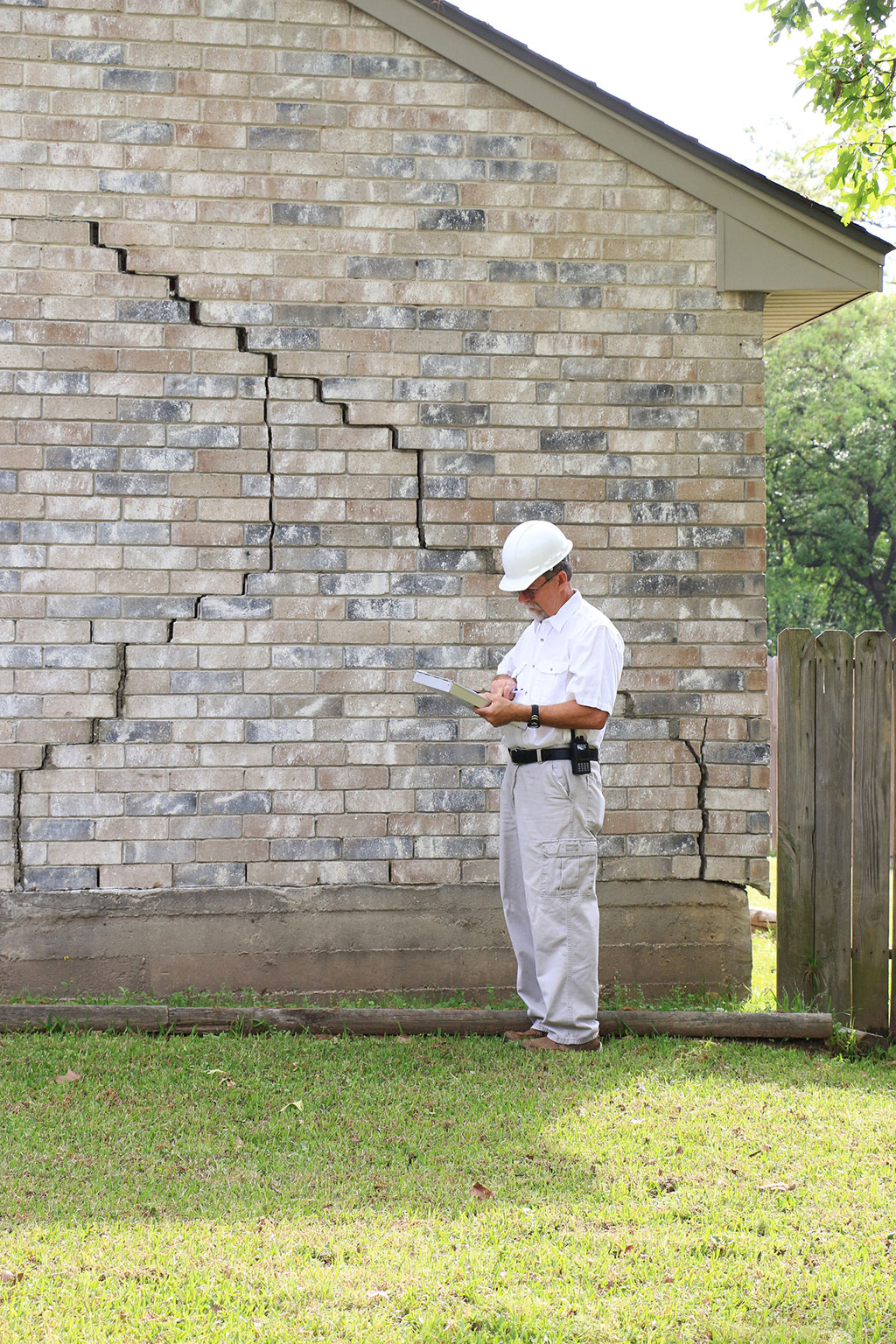
Foundation and Structural Repairs
Foundation Structural Services Guide
Introduction
Constructing a stable and secure foundation is the cornerstone of any successful building project. As a homeowner or developer, investing in professional foundation structural services is a critical step in ensuring the long-term integrity and safety of your structure. This introduction outlines the importance of these services and the key reasons why they are essential for building stability and safety.
Firstly, foundation structural services provided by experienced contractors play a vital role in assessing the soil conditions and designing a foundation that can withstand the specific challenges of the site. Proper soil analysis and foundation engineering are necessary to prevent issues like uneven settling, cracks, or even structural collapse down the line. By working with experts, you can be confident that your building's foundation is engineered to support the weight and withstand the environmental factors it will face.
Secondly, foundation structural services ensure that the building's load-bearing elements are properly installed and reinforced. This includes the footings, piers, and other critical components that transfer the building's weight to the ground. Skilled contractors use specialized techniques and materials to create a foundation that can safely support the structure above, safeguarding against potential failures or safety hazards.

Understanding Foundation Structural Services
Foundation structural services encompass a range of specialized tasks aimed at ensuring the stability, safety, and longevity of a building's foundation. These services are provided by experienced contractors and engineers who have the expertise to assess, repair, reinforce, and waterproof various foundation types.
One of the primary tasks involved in foundation structural services is inspection. Professionals will thoroughly examine the foundation, looking for signs of damage, wear, or potential issues. This may include assessing the soil conditions, evaluating the integrity of the footings and load-bearing elements, and identifying any cracks, settlement, or other signs of distress. Based on the inspection findings, they can then recommend the appropriate course of action.
Foundation repair is another critical service. If the inspection reveals problems like cracked or uneven slabs, settling, or water damage, the contractors will devise a plan to address these issues. This may involve techniques such as mudjacking, piering, or foundation underpinning to stabilize the foundation and restore its structural integrity.
Reinforcement is also a key aspect of foundation structural services. Contractors may recommend adding additional reinforcement, such as steel beams or concrete footings, to strengthen the foundation and enhance its load-bearing capacity. This is particularly important for foundations that need to support heavy structures or expansions.
Waterproofing is another essential service provided by foundation structural specialists. They will assess the foundation's vulnerability to water intrusion and implement solutions to prevent moisture from seeping in and causing damage. This may include the installation of drainage systems, sealants, or other waterproofing measures.
The types of foundations covered by these structural services include slab, crawl space, and basement foundations. Each foundation type has its own unique characteristics and requirements, and the contractors will tailor their approach accordingly.
By investing in professional foundation structural services, homeowners and developers can ensure that their building's foundation is designed, installed, and maintained to the highest standards, providing a solid and reliable base for the structure above.
Types of Foundation Issues
Foundations play a crucial role in the structural integrity and stability of any building. However, they can be susceptible to various types of issues that can compromise their performance and lead to significant problems if left unaddressed. Understanding the common foundation problems is essential for homeowners and developers to identify potential issues early and take appropriate action.
Cracks and Settling
One of the most prevalent foundation problems is cracking and uneven settling. Cracks can develop due to a variety of factors, including soil movement, improper soil preparation, or inadequate reinforcement during the construction process. Over time, these cracks can worsen, leading to uneven settling of the foundation. This can cause doors and windows to become misaligned, floors to slope, and walls to develop visible cracks. Settling can also put stress on the building's load-bearing elements, potentially compromising the overall structural integrity.
Soil Upheaval
Another common foundation issue is soil upheaval, which occurs when the soil beneath the foundation expands or swells, often due to changes in moisture content. This can cause the foundation to lift or heave, resulting in uneven surfaces and potential damage to the building's structure. Soil upheaval is particularly problematic in areas with expansive soils, such as those containing high clay content, which can swell significantly when exposed to moisture.
Moisture Damage
Moisture intrusion is a significant threat to the longevity and stability of a foundation. Water can seep into the foundation through cracks, porous materials, or inadequate drainage systems, leading to a range of issues. Moisture can cause the foundation to deteriorate, weaken the structural integrity, and create an environment conducive to mold and mildew growth. In severe cases, excessive moisture can even lead to the complete failure of the foundation.
Structural Defects
Improper design, construction, or materials used in the foundation can also lead to structural defects. This may include inadequate reinforcement, insufficient load-bearing capacity, or the use of substandard materials. Such defects can compromise the foundation's ability to support the weight of the building, potentially resulting in cracks, settling, or even catastrophic failure.
Addressing these types of foundation issues is crucial for maintaining the safety and longevity of any building. Professional foundation structural services can help identify the root causes of these problems and implement appropriate solutions to restore the foundation's integrity and ensure the overall stability of the structure.
Signs of Foundation Problems
Recognizing the early warning signs of foundation issues is crucial for homeowners and developers to address problems before they escalate. Some of the most common visible indicators of foundation problems include:
Uneven Floors
If the floors in your home or building are sloping, dipping, or uneven, it could be a sign of foundation settlement or structural issues. Floors that are not level can be a result of the foundation shifting or sinking over time.
Cracked Walls
Cracks in the walls, especially around doors and windows, are a clear indication of foundation problems. These cracks can be caused by the foundation settling unevenly or structural movement in the building.
Sticking Doors and Windows
When doors and windows start to stick, bind, or become difficult to open and close, it may be a symptom of a shifting or settling foundation. As the foundation moves, it can cause the framing of the building to distort, leading to these issues.
Exterior Cracks
Look for cracks in the exterior brickwork, siding, or masonry. These cracks can be a sign that the foundation is experiencing stress and moving, potentially leading to more significant structural problems.
Gaps Around Doors and Windows
If you notice gaps forming around the frames of doors and windows, it could be a sign that the foundation is settling or shifting, causing the framing to become misaligned.
Recognizing these early warning signs is crucial because foundation problems tend to worsen over time. Addressing them promptly can prevent further damage and costly repairs. By working with professional foundation structural services, homeowners and developers can identify the root cause of the issues and implement the appropriate solutions to stabilize the foundation and maintain the structural integrity of the building.
Benefits of Hiring a Professional Contractor
When it comes to foundation structural services, hiring a professional contractor offers numerous benefits that can save you time, money, and headaches in the long run. Compared to DIY efforts or hiring unqualified labor, professional contractors bring a wealth of expertise, specialized equipment, and quality assurance to the table.
One of the primary advantages of working with a professional contractor is their deep understanding of foundation engineering and construction. They have the technical knowledge and practical experience to accurately assess the soil conditions, design an appropriate foundation system, and ensure proper installation. This expertise allows them to identify potential issues and implement the most effective solutions, preventing costly problems down the line.
Professional contractors also have access to specialized equipment and tools that are essential for foundation work. From heavy machinery for excavation and concrete placement to precision instruments for leveling and measurement, they have the necessary resources to complete the job efficiently and to the highest standards. DIY efforts or inexperienced labor often lack the proper equipment, leading to subpar results and increased risks.
In addition to their technical capabilities, professional contractors also provide quality assurance throughout the entire process. They follow industry best practices, adhere to local building codes, and often offer warranties or guarantees on their work. This gives homeowners and developers the peace of mind knowing that their foundation is being built to last, with the backing of experienced professionals.
Furthermore, professional contractors have the necessary licenses, insurance, and certifications required for foundation structural services. This protects you, the client, from liability and ensures that any issues or accidents are covered, rather than falling on your shoulders.
By hiring a professional contractor, you can be confident that your foundation will be designed, installed, and maintained to the highest standards, providing a solid and reliable base for your building. This investment in quality workmanship can ultimately save you from costly repairs, structural problems, and safety hazards down the road.
The Service Process
When it comes to providing foundation structural services, contractors follow a well-defined process to ensure the stability, safety, and longevity of a building's foundation. This process typically involves the following key stages:
Initial Assessment
The first step in the foundation structural services process is a comprehensive assessment of the site and the existing foundation. Experienced contractors will thoroughly inspect the property, evaluating factors such as soil conditions, the integrity of the load-bearing elements, and any visible signs of damage or distress. This assessment allows them to identify potential issues and develop a tailored solution for the specific needs of the project.
Diagnostic Testing
In some cases, the initial assessment may require additional diagnostic testing to gain a deeper understanding of the foundation's condition. This could involve techniques such as soil analysis, concrete testing, or structural integrity evaluations. These specialized tests provide the necessary data to accurately diagnose any underlying problems and determine the appropriate course of action.
Planning and Design
Based on the findings from the assessment and diagnostic testing, the contractor will develop a detailed plan for addressing the foundation's needs. This may involve designing reinforcement strategies, specifying necessary repairs, or engineering a completely new foundation system. The plan will take into account factors such as the building's size, weight, and environmental conditions to ensure the foundation can safely support the structure.
Execution
With the plan in place, the contractor will then proceed to execute the necessary work. This could include tasks such as excavation, concrete pouring, piering, or the installation of specialized reinforcement materials. The contractor's team of skilled professionals will utilize their expertise and specialized equipment to carry out the work efficiently and to the highest standards.
Final Inspection
Once the foundation work is complete, the contractor will conduct a final inspection to ensure the integrity and proper functioning of the foundation. This may involve testing the load-bearing capacity, checking for any remaining cracks or defects, and verifying that the foundation meets all relevant building codes and safety regulations. This final step provides the homeowner or developer with the assurance that the foundation is ready to support the structure above.
By following this comprehensive process, foundation structural service contractors can identify and address any issues, design and implement the appropriate solutions, and deliver a foundation that is engineered to provide long-term stability and safety for the building.
Case Studies
Case Study 1: Addressing Severe Foundation Settling
A large commercial building in a downtown area was experiencing significant foundation settling, leading to uneven floors, cracked walls, and misaligned doors and windows. The building owner hired a team of experienced foundation structural service contractors to assess the issue and develop a solution.
The initial assessment revealed that the building's foundation had settled unevenly due to poor soil conditions and inadequate load-bearing capacity. The contractors conducted a thorough soil analysis and determined that the foundation needed to be reinforced and stabilized.
The solution involved a multi-step process. First, the team excavated around the perimeter of the building and installed a series of helical piers, which were driven deep into the ground to provide additional support. Next, they used a technique called slabjacking, or mudjacking, to lift and level the sunken portions of the foundation.
Once the foundation was stabilized, the contractors addressed the visible damage to the building. They repaired the cracked walls, realigned the doors and windows, and ensured that the floors were level and even throughout the structure.
The outcome of this comprehensive foundation repair project was a stable, secure, and level foundation that restored the structural integrity of the commercial building. The owner was able to continue operations without disruption, and the building's long-term viability was assured.
Case Study 2: Waterproofing a Basement Foundation
A homeowner in a flood-prone area was experiencing persistent water intrusion in their basement, leading to moisture damage, mold growth, and concerns about the foundation's stability. They reached out to a team of foundation structural service contractors to address the issue.
The initial assessment revealed that the basement foundation was susceptible to water infiltration due to poor drainage and an outdated waterproofing system. The contractors developed a plan to implement a comprehensive waterproofing solution.
First, they excavated around the exterior of the basement and installed a new drainage system, including perimeter drains and a sump pump, to divert water away from the foundation. They then applied a specialized waterproofing membrane to the exterior of the foundation walls, creating a barrier against moisture intrusion.
In addition, the contractors addressed any cracks or gaps in the foundation that could allow water to seep in. They used a combination of epoxy injections and sealants to fill and reinforce these vulnerable areas.
Finally, the team installed a interior drainage system, complete with a sump pump, to capture any water that might still find its way into the basement. This redundant approach ensured that the homeowner's basement would remain dry and the foundation would be protected from the damaging effects of water.
The outcome of this project was a fully waterproofed basement foundation that effectively prevented any further water intrusion. The homeowner was able to use the basement space without the constant threat of moisture-related issues, and the overall structural integrity of the home was preserved.
Case Study 3: Foundation Reinforcement for a Home Addition
A homeowner wanted to add a second story to their single-story house, but the existing foundation was not designed to support the additional weight. They hired a team of foundation structural service contractors to evaluate the situation and develop a reinforcement plan.
The initial assessment revealed that the existing foundation was adequate for the original one-story structure, but it would need to be reinforced to safely support the proposed second-story addition. The contractors developed a plan to strengthen the foundation without the need for a complete rebuild.
The solution involved the installation of supplemental concrete footings and piers around the perimeter of the existing foundation. These additional load-bearing elements were strategically placed to distribute the increased weight of the second story, ensuring that the foundation could safely support the entire structure.
The contractors also used steel reinforcement, such as rebar and anchors, to further strengthen the foundation and create a seamless connection between the existing and new components. This allowed the second-story addition to be built without compromising the integrity of the original foundation.
The outcome of this project was a reinforced foundation that successfully supported the homeowner's second-story addition. The homeowner was able to expand their living space without having to completely rebuild the foundation, saving time and money while ensuring the long-term stability of the entire structure.
Choosing the Right Contractor
When it comes to foundation structural services, selecting the right contractor is crucial for the success and longevity of your project. A qualified and reputable contractor can ensure that your foundation is designed, installed, and maintained to the highest standards, providing a solid and reliable base for your building. Here are some key factors to consider when choosing a foundation structural service contractor:
Credentials and Licensing
Look for contractors who have the necessary licenses, certifications, and credentials to perform foundation structural services in your area. This typically includes state or local licenses, as well as specialized certifications in areas like soil analysis, foundation engineering, or concrete work. Ensure that the contractor is fully insured and bonded, protecting you from liability in case of any accidents or issues during the project.
Experience and Portfolio
Choose a contractor with extensive experience in foundation structural services. Ask about the number of similar projects they have completed, the types of foundations they have worked on, and their track record of successful outcomes. Review their portfolio of past work to get a sense of their expertise and the quality of their craftsmanship.
Client Reviews and References
Reach out to the contractor's previous clients and ask about their experiences. Were they satisfied with the contractor's work, communication, and overall professionalism? Check online reviews and ratings to get a broader understanding of the contractor's reputation in the industry.
Detailed Proposals and Warranties
When evaluating potential contractors, request detailed proposals that outline the scope of work, timeline, materials to be used, and the total cost of the project. A reputable contractor should also provide warranties or guarantees on their work, giving you peace of mind and protection against future issues.
Multiple Quotes
It's always a good idea to obtain multiple quotes from different foundation structural service contractors. This allows you to compare pricing, approach, and expertise, helping you make an informed decision that aligns with your budget and project requirements.
By carefully evaluating the credentials, experience, reviews, and proposals of potential contractors, you can ensure that you select a partner who will deliver high-quality foundation structural services, ensuring the stability and safety of your building for years to come.


















